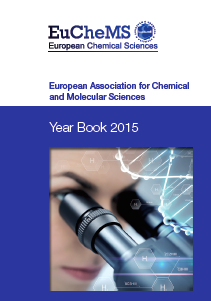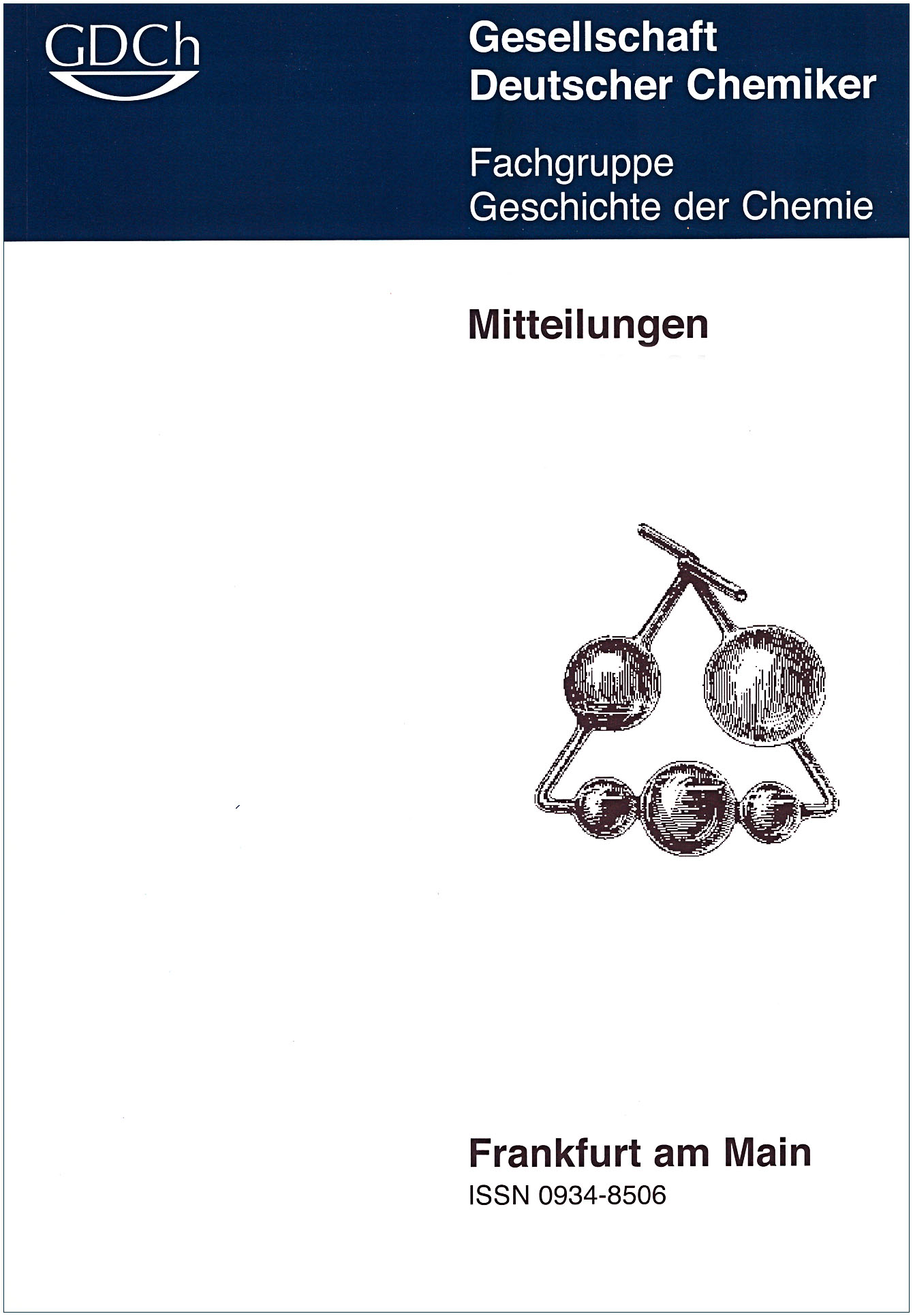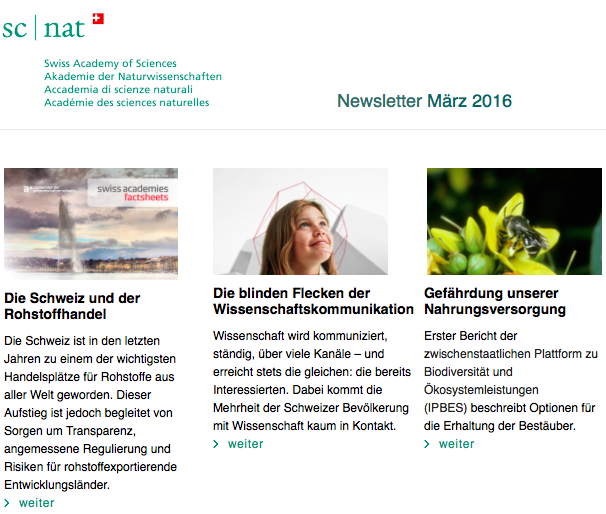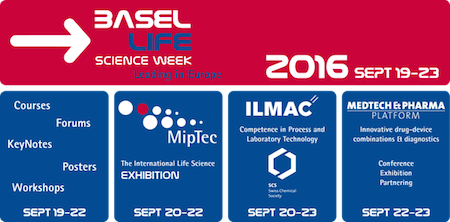EuCheMS Year Book 2015
 It is my pleasure to bring to your attention 2015 EuCheMS Year Book. It is available at http://www.euchems.eu/euchems-2015-yearbook-online/ and as download below this intro text.
It is my pleasure to bring to your attention 2015 EuCheMS Year Book. It is available at http://www.euchems.eu/euchems-2015-yearbook-online/ and as download below this intro text.
Furthermore, should you have suggestions for improvements for the 2016 one, please feel free to let us know.
With my best regards
Nineta Hrastelj Majcen, PhD
David Spichiger, SCS
15.03.2016
High school teachers get hands-on training at EPFL
Five teachers worked one day a week at EPFL during the winter term as part of a pilot project of the Education Department of the Canton of Valais and a partnership with Wohlen high school.
The purpose of the training program, which was developed and run by EPFL's Study Programs Promotion Services, was to provide the teachers with insights they can use to help ease their students’ transition from high school to EPFL. “Our aim is to get a clearer idea of EPFL’s requirements of our graduates and, if necessary, change how we teach,” said Stéphane Dayer, the representative of Ecole-Economie, a joint initiative of the Valais Departments of Education and Economy.
Read the full article on: http://actu.epfl.ch/news/high-school-teachers-get-hands-on-training-at-epfl/
Author:Sarah Bourquenoud, Source: Mediacom
15.03.2016
Newsletter SCNAT March 2016
Webversion des März 2016 Newsletters der SCNAT.
David Spichiger, SCS
14.03.2016
GDCh: Geschichte der Chemie : Mitteilungen ISSN 0934-8506
 Die Mitteilungen der Fachgruppe Geschichte der Chemie sind eine der nur vier speziell chemiehistorischen Zeitschriften weltweit.
Die Mitteilungen der Fachgruppe Geschichte der Chemie sind eine der nur vier speziell chemiehistorischen Zeitschriften weltweit.
Sie erscheinen seit 1988 in der Regel einmal im Jahr. Mitglieder der Fachgruppe beziehen die Zeitschrift im Rahmen ihres Mitgliedsbeitrages; andere können die Hefte gegen Unkostenbeteiligung von der Geschäftsstelle anfordern.
Die Mitteilungen veröffentlichen sowohl Vorträge aus den Tagungen der Fachgruppe als auch freie Beiträge. Der Teil „Dokumentation und Information“ – in der elektronischen Ausgabe zusammengefasst – enthält Nachrichten aus dem Fachgebiet und weist auf einschlägige Tagungen, Ausstellungen und Neuerscheinungen hin.
Beiträge können in deutscher oder in englischer Sprache eingereicht werden. Für weitere Angaben wird auf die Autorenrichtlinien verwiesen.
Die Mitteilungen werden regelmäßig in den Chemical Abstracts sowie in der Isis Current Bibliography on the History of Science bibliographisch referiert.
Von 2016 an ist die Zeitschrift auch elektronisch frei zugänglich. Inhaltlich sind die Mitteilungen über das folgende Menü erschlossen. Für die Jahrgänge 1 (1988) – 20 (2009) existiert ein kumuliertes Inhaltsverzeichnis.
Link zur GCGh-Webseite der Mitteilungen der Fachgruppe Geschichte der Chemie
Quelle: www.gdch.ch
David Spichiger, SCS
24.02.2016
Basel Life Science Week 2016 - Registration & Abstract Submission now open!
The BLSW Committees has compiled a highly interesting and diverse scientific programme for this year’s congress and we are delighted to announce that the Basel Life Science Week 2016 Preliminary Scientific Programme is now available on the congress website.
![]() Deadline for abstract submission is 21 April 2016
Deadline for abstract submission is 21 April 2016
Share your research and best-practices in diverse aspects of Life Science at BLSW 2016; the ideal platform for you to present your latest findings and experiences to key international specialists. To view all abstract topics and preparation guidelines please click here.
| Submit your Abstract now! |
![]() Registration now open!
Registration now open!
The registration is free of charge for all participants in case you register until 18th September 2016. The registration includes: access to all scientific sessions and to the industrial exhibition, to the social programme such as: welcome reception, interactive poster session and reception. All delegates will receive a programme at a glance as well as coffee and lunch in the exhibition area.
| Register now! |
Please visit the congress website www.basel-life-science-week.eu for further information.
We are looking forward to welcoming you to Basel in September!
Best regards
Congress secretariat
For further information please contact
BLSW 2016
Congrex Switzerland Ltd.
Peter Merian-Str. 80
4002 Basel / Switzerland
Tel.: +41 61 686 77 77
Fax: +41 61 686 77 88
E-mail:
BLSW – MipTec: The Leading European Event for Life Science: www.basel-life-science-week.eu
David Spichiger, SCS
19.02.2016
Page 117 of 299


